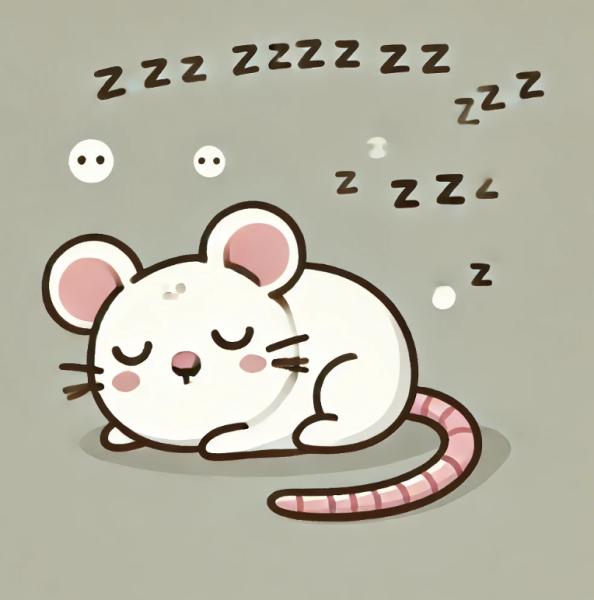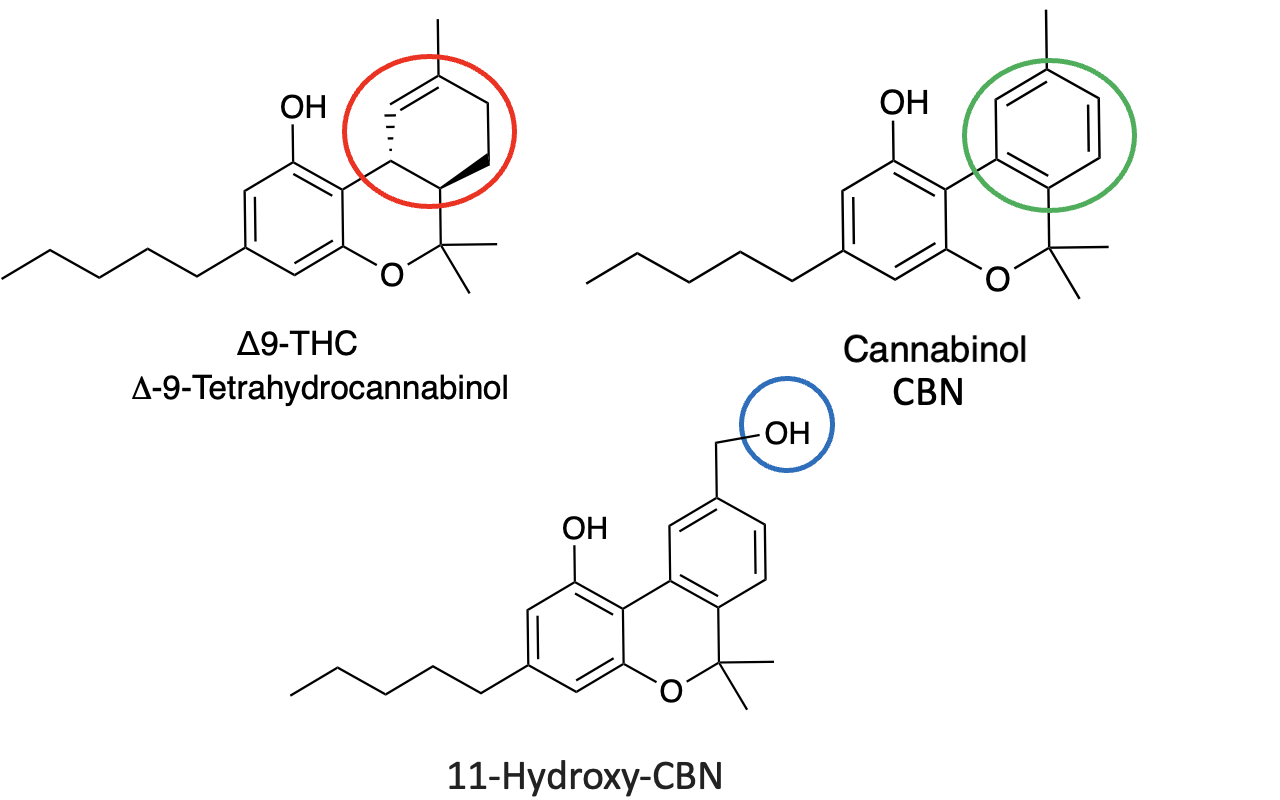Sleep properties of CBN
The authors used a method called polysomnography (basically a sleep study) to measure the impact of CBN on several parameters of sleep in rats. Some are rather interesting.
- While CBN increased the total sleep time in the rats it also took longer to fall asleep. This is called a biphasic effect.
- CBN enhanced both non-rapid eye movement (NREM) and rapid eye movement (REM) sleep, leading to deeper sleep.
- The increase in NREM sleep was similar to that of Ambien (zolpidem), but Ambien did not affect REM sleep. (2)
11-Hydroxy-CBN - A surprising culprit shows up
As if the chemistry of cannabinoids isn't complicated enough, the Sydney group made an unexpected discovery. Analysis of the brains of rats that had been dosed with CBN showed CBN (duh) and its oxidation product 11-hydroxy-CBN – surprisingly present in equal amounts. Is this compound also sleep-inducing? Sort of.
Sleep properties of 11-Hydroxy-CBN
- 11-OH-CBN also increased total sleep time but also prolonged wakefulness in the rats. This biphasic effect was considerably less than that of CBN itself.
- 11-OH enhanced both NREM and REM sleep, but NREM periods were shorter leading to a fragmented sleep.
- 11-OH had a less robust effect than Ambien in increasing sleep time with a delayed onset and a weaker overall effect.
Chemistry complaint time!
It should also be noted that even though 11-OH-CBN is found in surprisingly high amounts in rat brains this will never be a source of the drugs. Instead, it must be synthesized. I looked up the published synthesis, which is no walk in the park, even for experienced organic chemists.
What does all this mean?
Although CBN is being touted as a potential sleep aid its utility probably depends upon individual metabolism, since its metabolite 11-OH-CBN is probably a weaker sleep aid. People who are rapid metabolizers of CBN would probably derive less benefit from the drug.
This study points out some of the complexities of cannabis-derived drugs. It's not as simple as taking a pill.
Perhaps the biggest issue is the biphasic effect. Both drugs kept the rats awake longer but also made them sleep more in total. These are not the properties anyone would want in a sleep aid – lying awake for hours and then not being able to get up in the morning. I'll take the Ambien.
NOTE:
(1) Both forms of sleep are critical for health. NREM supports physical restoration and REM focuses on emotional and cognitive functions.





